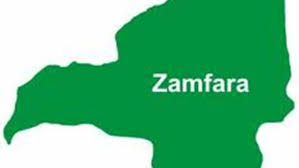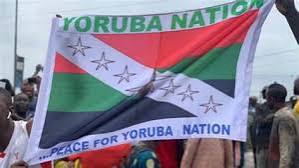The federal government recently gave a go ahead for the recruitment and training of more personnel into the Nigerian Police Force to fortify its strength, but KEHINDE OSASONA in this piece gathers that it won’t be enough to tackle the country’s security concerns effectively.
When in 2017 the then Inspector General of Police, Ibrahim Idris, mooted the idea of recruiting additional 155,000 personnel to provide adequate security for the country, he pegged his reasons on the quest to attain the UN ratio requirement of one police officer to 400 citizens.
The former police boss was quoted as saying; “The Nigeria Police Force needs to recruit 155,000 to police the Nigerian population of approximately 182 million.”
Idris, who made the declaration at a two-day National Security Summit in Abuja, noted that the police had not conducted recruitment into its rank and file cadre since 2011 until 2016, when the recruitment of 10,000 applicants was approved by the federal government.
The development, according to him, had left a huge gap in the manpower needed of the force due to retirements, deaths and resignations.
“Over the years, the Nigeria Police Force saddled with the responsibility of policing the country, has been grappling with fundamental challenges which tend to impede its performance.
“Inadequate funding, shortfall in power and training and retraining of personnel had been some of the challenges confronting the force.”
Issues, assurances
Early this year, the government of President Muhammadu Buhari said in an effort to re-energise and improve the personnel of the force to tackle the ever- increasing security challenges in the country, it had recruited 40,000 police officers in the past four years.
President Buhari, who was represented by the Minister of Police Affairs, Dr. Maigari Dingyadi, disclosed this in his remarks while declaring open a two-day retreat for Senior Police Officers in Uyo, Akwa Ibom state.
The president said further that the federal government had also granted assent to the Nigerian Police Trust Fund Act and carried out an upward review of salaries and allowances of the rank and file, in a bid to boost the morale of the Force.
He said other efforts aimed at improving service delivery in the force initiated by the government included the establishment of a Task Force on need assessment of the Nigeria Police headed by the vice-president, Prof. Yemi Osinbajo. According to him, his administration has prioritised the reform, re-equipment and re-engineering of the Nigerian Police, being the lead and most critical agency in the nation’s internal security architecture.
This reporter gathered that although the task of fortifying the ranks of the nation’s Police Force considering the financial implications appears overwhelming, the age-long advocacy for more hands was against the backdrop of the spate of insecurity plaguing the country.
Significantly, the NPF data also showed that the number of police officers has been on the decline which has led to endless clamour for more hands to be able to police the people and communities, especially those prone to attack by bandits.
There were 244,756 in 2016 protecting over 140 million Nigerians. In 2017, the number of police officers dropped to 225, 339 and again to 221.936 in 2018.
While corroborating the claims revealed by the NPF data, a commissioner, representing the South-east in the Police Service Commission (PSC), Onyemuche Nnamani, recently called on the government to increase the number of Constables recruited into the Force to 20,000 annually.
Nnamani, who made the call while addressing newsmen in Abuja, argued that the call was to avail the Force with more manpower to contain the present security crisis in the country.
The commissioner lamented that the Police strength was not enough to secure a vast nation like Nigeria, especially in the wake of the seemingly unending banditry and terror attacks.
Community policing
While speaking during an official tour of Kwara state recently, the IGP said, “Nobody eliminates crimes completely from any society but you can mitigate or reduce it to the barest minimum. When you reduce crimes to the barest minimum, people will go about their lawful businesses.”
Alkali also said a total number of 20,000 police personnel would be employed this year across the 774 local government areas of the country in order to take care of last year planned employment that did not take place.
He also advocated that policing through intelligence and proactive means of policing, ICT and training was key, saying that “you can sit down and police the whole state,.”
Reactions
Speaking to Blueprint Weekend on the development, a public commentator, Olanrewaju Lawal, dismissed the recruitment exercise, saying it won’t address the country’s security challenges which, according to him, have gone beyond the level the Nigerian can handle.
He said, “Even with more deployment of officers, we still lacked good weapons, technologies and enough officers to secure the nation.
“If the police were adequately equipped with the best weapons with deployment of enough officers across the country, the situation would have improved drastically. But imagine a million police officers policing over 200 million populations with old weapons, low ammunition and shortage of vehicles?”
Lawal also called for an adjustment in the recruitment policy to room for merits, able and qualified men to be absorbed into the force.
In another exclusive interview, a security analyst, Mr. Chidi Omeje, said even though the police force’s function as a first responder is key, the dearth of policemen has made military intervention necessary.
“Don’t forget that the military are the last line of defence, trained to kill and dominate spaces but now they are being dragged in to swell the ranks.
“Even though the Police are supposed to be central in every operational activity but about 50 percent of the police force strength have been deployed to the protections of VIPs, corporate organizations, politicians, celebrities, banks and what have you thereby making us have some ungoverned spaces and thereby leaving citizenry and communities under-policed.
“It is important that the police reclaim their primary function of policing, intelligence gathering and so on. There is a need to actually recruit more policemen, train them properly with requisite tools, equip them well and motivate them to function well and nip in the bud any uprising.”
Going forward
The IGP after making some clarifications, endorsed community policing, saying the voluntary vocation was meant for people, who had jobs but only wanted to give back to their society by helping to keep it safe.
“For those who are interested in the community policing project, community Police officers are supposed to be people, who have lawful means of livelihood. It is not a paid job. Community police officers are not going to be paid.
“We have made a lot of efforts to train those who are interested and we are also training more. Our training is just for them to have rudiments of policing, rudiments of crime prevention and control.”
Also, Omeje advocated that “for now, police will do more in collaborating with the military to rid the communities of crimes and insecurity.”
He nevertheless said there’s a need for the government to bridge the gaps, stressing that the country “is contending with 400,000 or thereabouts the number of personnel to over 200 million below the United Nations’ specification.”




